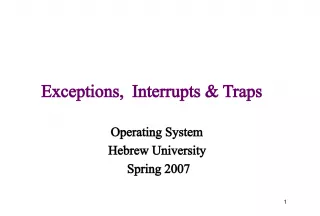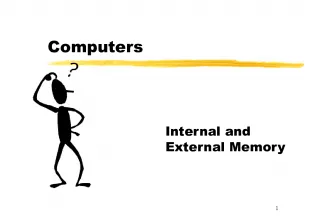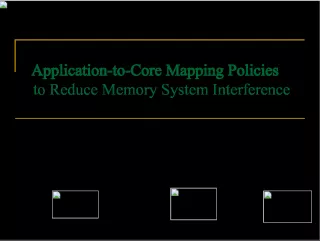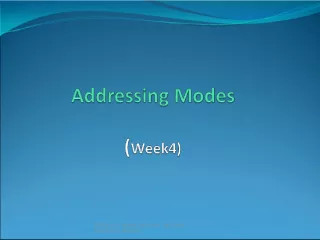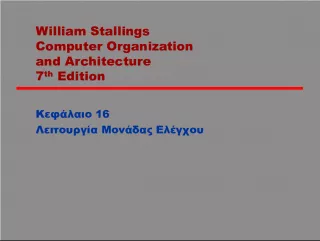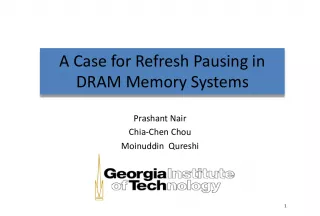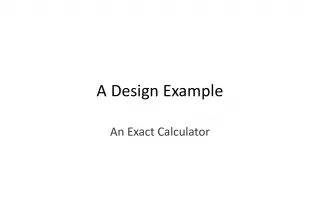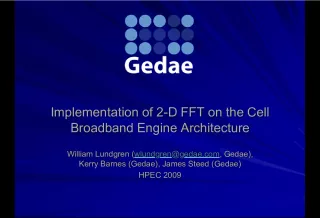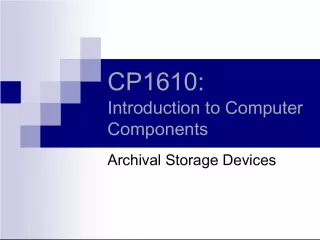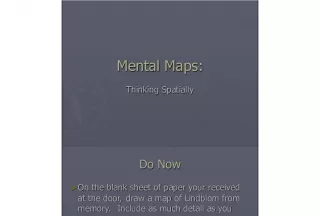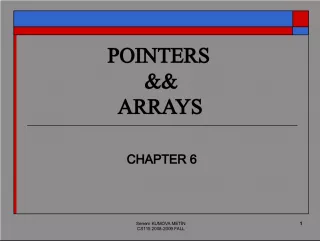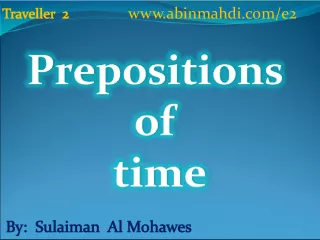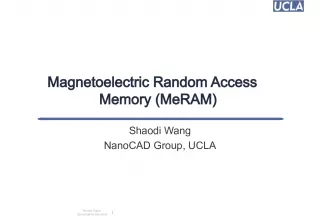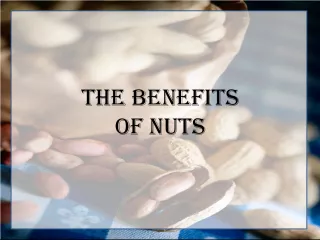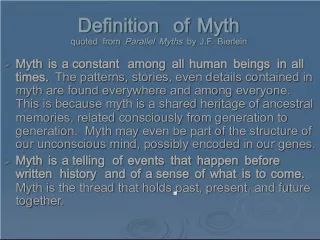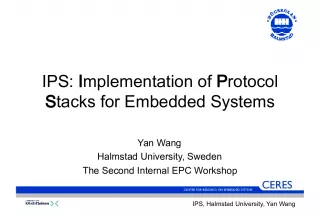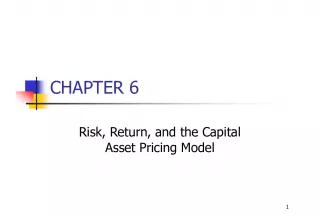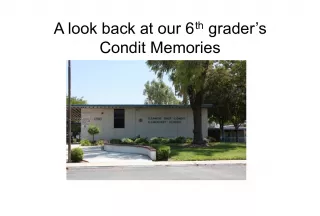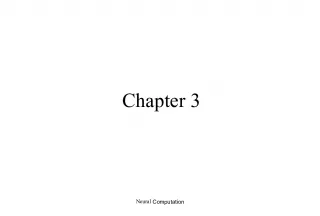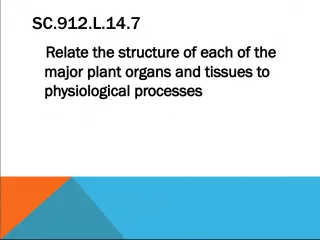Understanding Prospective Memory and Its Relation to Retrospective Memory
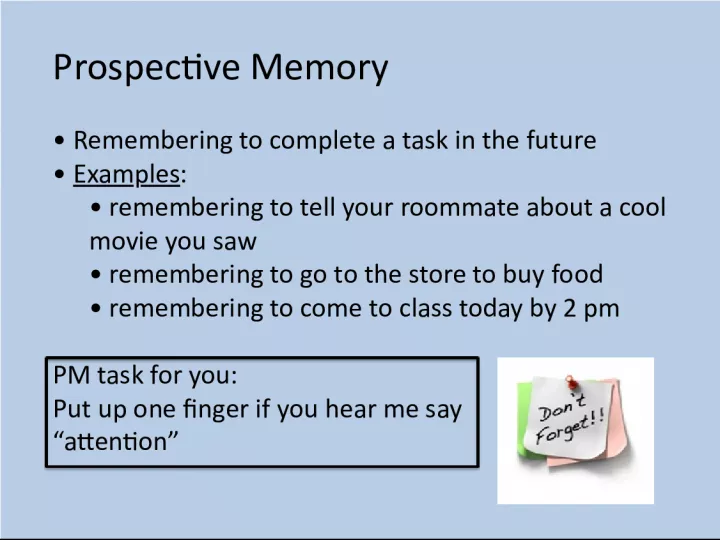

This article explores the concept of prospective memory, which refers to remembering to complete a task or activity at some point in the future. Examples of prospective memory include remembering to
- Uploaded on | 1 Views
-
 arianesingh
arianesingh
About Understanding Prospective Memory and Its Relation to Retrospective Memory
PowerPoint presentation about 'Understanding Prospective Memory and Its Relation to Retrospective Memory'. This presentation describes the topic on This article explores the concept of prospective memory, which refers to remembering to complete a task or activity at some point in the future. Examples of prospective memory include remembering to. The key topics included in this slideshow are . Download this presentation absolutely free.
Presentation Transcript
Slide1Prospective Memory• Remembering to complete a task in the future • Examples : • remembering to tell your roommate about a cool movie you saw • remembering to go to the store to buy food • remembering to come to class today by 2 pm PM task for you: Put up one finger if you hear me say “attention”
Slide2Prospective MemoryPM vs. retrospective memory • self-initiated retrieval mode vs. researcher- initiated retrieval mode • retrieval mode based on cue or time (remember that) • retrospective component to PM (remember what)
Slide3Prospective MemoryHow is PM studied? • Ongoing task – models everyday tasks • PM task given with ongoing task to perform at set time or when encounter cue • Event-based vs. Time-based tasks • Press “p” key when see the word “turtle” • Press “p” key in 5 minutes
Slide4Prospective MemoryHow is PM studied? • Tasks can be lab-based or naturalistic • lab-based = cognitive + PM task on computer • naturalistic = PM task in everyday life • remember to call researcher when see test text or at 5 pm on Thurs • use of reminders
Slide5Prospective MemoryTheories of PM – Event-based tasks • How much does PM task tax cognitive resources? (1) PAM View - Preparatory Attention always needed (2) MP View - Multiple Processes can be used
Slide6Prospective Memory(1) PAM View: - resources always taken from ongoing task - people monitor environment for PM cues - can be seen in slower ongoing task performance or lower accuracy when PM task given
Slide7Prospective Memory(2) MP View: - default is to use automatic processes to spontaneously retrieve PM intention when cue is presented - only when PM task is difficult or important use cognitive resources to monitor for cues - will see no change in ongoing task performance with easy PM tasks
Slide8Prospective MemoryWhen is PM task easy? (Einstein & McDaniel, 2005) • Focal task – process relevant features of PM cue when doing ongoing task - lexical decision with specific word PM cue - Count vowels with repeated vowels PM cue • MP view proposes spontaneous retrieval used for focal tasks • Non-focal tasks more likely to use resources
Slide9Prospective MemoryPAM vs. MP Debate • Studies have shown cost to ongoing task with PM task (Smith, 2003) • Studies have shown no cost to ongoing task with focal PM tasks (Einstein et al., 2005) • Problem with non-significant findings • Smith et al. (2007) showed cost with focal task
Slide10Prospective MemoryAlternative view - TAP • Overlap in processing type for ongoing and PM tasks aids PM performance • Studies have shown higher PM accuracy when tasks have same type of processing (Meier & Graf, 2000), but some have not found effect • Focal processing might be extreme case
Slide11Prospective MemoryMy Recent Work • Compare TAP and MP views of PM performance • PM task: respond to repeated vowels • Focal – Match (number of vowels) • Nonfocal – Match (number of syllables) • Nonfocal – Mismatch (living/nonliving)
Slide12Prospective Memory* Supports MP view McBride & Abney (in press)
Slide13Prospective MemoryMy Recent Work • However, additional study looking at effort on the ongoing task • Ongoing task: lexical decision • Focal – Match: respond to specific words • Nonfocal – Match: respond to animal words • Nonfocal – Mismatch: respond to palindromes (rotor, radar, etc.)
Slide14Prospective MemorySupports Gradation view * * Abney & McBride (submitted)
Slide15Prospective MemoryForgetting in PM – Does PM decline as RM does? • Some studies have shown PM declines with longer delays (Meier et al., 2006; Scullin & McDaniel, 2010) • Others show no decline (Guynn et al., 1998; Nigro & Cicogna, 2000)
Slide16Prospective MemoryMy Recent Work • Looked at delays of 1 to 20 min in 2 exps Exp 1 Exp 2 McBride, Beckner, & Abney (M&C, 2011)
Slide17Prospective MemoryCompleting PM tasks – do we remember? • Important for some tasks – taking medication • Studies have shown that cost of PM task may continue after PM task has been completed (West et al., 2007) • Intention Superiority Effect – takes time for activation of a PM intention to degrade • How long does deactivation of intention take?
Slide18Prospective Memory - Summary• PM = remembering to complete task in future • Is attention necessary for completion? Sometimes • Is overlap of processing in ongoing and PM tasks important? Probably • Is forgetting in PM similar to forgetting in RM? Probably • How long does it take to deactivate an intention? ??
